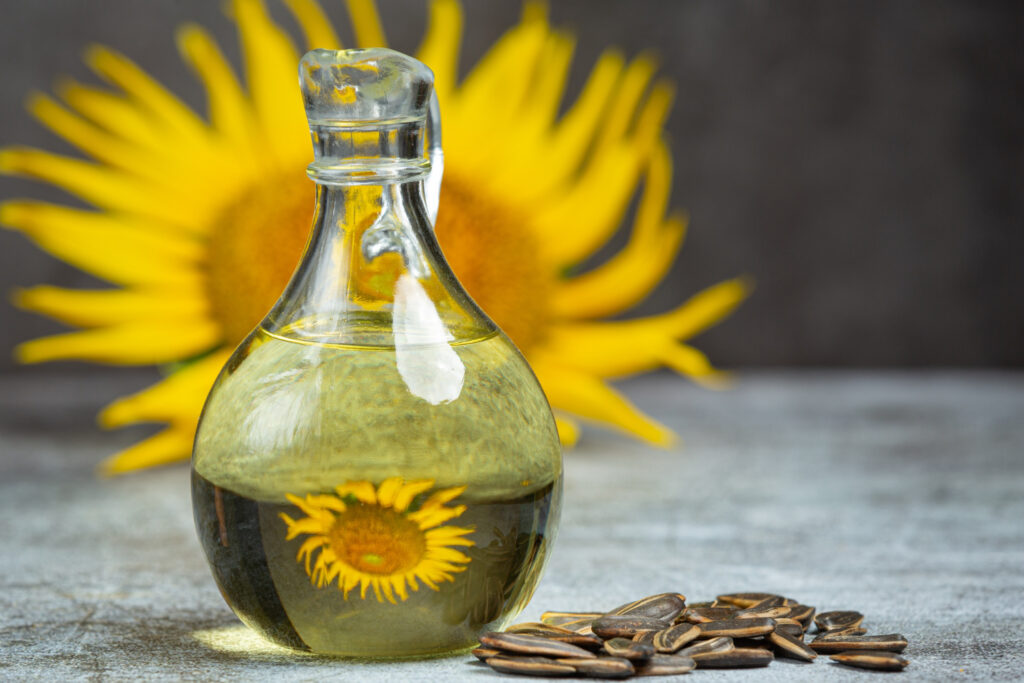Anointing oil has been a meaningful substance in spiritual and personal practices for thousands of years. It carries both symbolic and practical importance, serving as a medium for blessings, healing, and ritual use. From sacred ceremonies to quiet moments of personal reflection, anointing oil is recognized across many traditions for its ability to connect the physical and spiritual worlds. In this article, we explore the origins, ingredients, uses, and symbolism of anointing oil, offering guidance for anyone interested in understanding or using it in a safe and meaningful way.
Anointing oil is not just a religious tool; it also has personal significance. Its scent, texture, and composition can evoke feelings of calm, focus, and spiritual connection. By understanding the history and purpose of anointing oil, you can incorporate it thoughtfully into your life, whether for traditional rituals or personal reflection.
What Is Anointing Oil and Where Does It Come From?
Anointing oil is a specially prepared mixture of oils, herbs, and sometimes resins, designed for ceremonial, spiritual, or personal use. Historically, it has been associated with religious practices, particularly in Jewish, Christian, and some Eastern traditions. In the Bible, anointing oil was used to consecrate priests, prophets, and kings, symbolizing God’s blessing and protection.
The earliest references to anointing oil can be traced back to ancient Middle Eastern cultures, where oils extracted from olive trees, combined with fragrant spices, were considered sacred. These oils were often stored in small vessels and applied to the body or objects during rituals, creating a tangible connection between the earthly and the divine. Over time, the practice of anointing spread to different parts of the world, adapting to local traditions, beliefs, and available ingredients.
In modern times, anointing oil continues to hold spiritual significance but is also valued for its calming, therapeutic, and aromatic properties. People use it in private prayers, meditation, healing rituals, and even in everyday life as a form of personal blessing.
Traditional and Modern Ingredients Used in Anointing Oil
The ingredients used in anointing oil vary depending on tradition, purpose, and availability. Traditionally, the base oil was often olive oil, prized for its purity, longevity, and smooth texture. Olive oil alone was believed to carry spiritual significance, representing peace, prosperity, and divine favor.
Along with olive oil, ancient recipes included a combination of aromatic spices and herbs such as myrrh, frankincense, cinnamon, and cassia. Each ingredient held symbolic meaning: myrrh for healing and protection, frankincense for prayer and devotion, and cinnamon for strength and vitality. These ingredients were carefully blended to create a fragrant and meaningful anointing oil.
In contemporary practice, people often expand the range of ingredients to include essential oils like lavender, rosemary, or sandalwood. These modern variations maintain the spiritual essence of anointing oil while enhancing its therapeutic and aromatic qualities. Some anointing oils may also include carrier oils such as jojoba or almond oil, which help preserve the oil and make it easier to apply.
The beauty of anointing oil lies in its adaptability. Whether following an ancient biblical recipe or creating a modern blend for personal use, the oil serves as a bridge between intention, ritual, and sensory experience.
Common Uses of Anointing Oil in Daily Life
Anointing oil is versatile, with uses that range from religious ceremonies to personal wellness practices. In religious settings, it is often used to consecrate sacred objects, bless individuals, or mark significant life events. For example, pastors or spiritual leaders may anoint congregants during prayer, baptisms, or healing services. The act of applying the oil is symbolic, representing purification, blessing, and divine presence.
Outside formal rituals, many people incorporate anointing oil into their daily lives to enhance mindfulness, meditation, and self-reflection. The ritual of applying a small amount of oil can create a sense of calm and focus, helping individuals feel more connected to their intentions or prayers. Some also use anointing oil in personal spaces, such as home altars or meditation corners, to create a peaceful and spiritually uplifting environment.
Anointing oil is also believed to have healing properties. While not a substitute for medical care, the gentle massage of the oil on the skin can soothe tension, reduce stress, and promote a sense of well-being. This combination of spiritual and practical benefits makes anointing oil a unique and meaningful addition to daily life.
The Symbolism Behind Anointing Oil in Faith and Rituals
The symbolic meaning of anointing oil is rich and varied. In many traditions, it represents sanctity, blessing, and divine approval. In the Bible, for example, anointing oil was used to mark priests, prophets, and kings as chosen by God. This sacred act symbolized authority, holiness, and spiritual empowerment.
Anointing oil also conveys purification and protection. The act of anointing can signify the removal of negativity, the blessing of health, and the invitation of divine presence. It can serve as a physical reminder of spiritual intentions, helping individuals maintain focus and faith in their daily lives.
Beyond religious contexts, anointing oil symbolizes care, respect, and mindfulness. Applying oil to oneself or others can express love, intention, and honor, creating a meaningful connection that goes beyond words. The symbolism of anointing oil, therefore, is both spiritual and deeply personal, resonating with people in many different ways.
How to Make Your Own Anointing Oil at Home Safely?
Creating anointing oil at home is a simple and rewarding process, as long as it is done safely and with care. Start by choosing a base oil such as olive oil, almond oil, or jojoba oil. The base oil forms the foundation, providing a smooth texture and carrying the fragrance of added ingredients.
Next, select herbs or essential oils according to your purpose. For spiritual rituals, traditional ingredients like frankincense, myrrh, and cinnamon are ideal. For relaxation and meditation, lavender, rosemary, or sandalwood may be preferred. Always ensure that any essential oils used are safe for skin application and are diluted properly.
Mix the base oil with the chosen oils and herbs in a clean, airtight container. Many people like to infuse the oil by letting it sit for several days, allowing the scents and properties of the herbs to blend naturally. During this time, it can help to focus on your intention, prayer, or meditation, adding a personal spiritual layer to the oil.
Once ready, store the anointing oil in a cool, dark place to maintain its quality. Labeling the container with the date and purpose can help track its use and ensure it remains fresh. By making your own anointing oil, you create a product that is both meaningful and personalized, tailored to your spiritual and personal needs.
Choosing the Right Anointing Oil for Personal or Spiritual Use
Selecting the right anointing oil depends on your intended use and personal preference. For religious purposes, traditional oils with biblical or historical significance may be preferred. These oils often use olive oil as a base and include traditional spices and resins to maintain spiritual authenticity.
For personal use, consider what qualities you seek in the oil. Do you want calming effects, aromatic pleasure, or spiritual focus? Essential oils like lavender and frankincense can provide soothing scents, while rosemary and cinnamon may evoke energy and alertness.
It is also important to consider the quality and purity of the oil. High-quality, natural oils are more effective and safer for skin application. Avoid oils with artificial fragrances or harmful additives, as these can diminish the spiritual and sensory experience.
Ultimately, the best anointing oil is one that resonates with your intention, whether for spiritual rituals, personal meditation, or daily reflection. The act of choosing and using the oil can itself be a meaningful spiritual practice, reinforcing your connection to intention, faith, and mindfulness.
Conclusion
Anointing oil carries both spiritual significance and personal meaning. Its history spans thousands of years, from biblical traditions to modern practices, maintaining a powerful presence in rituals, meditation, and personal reflection. Whether used in formal ceremonies or quiet moments of introspection, anointing oil serves as a tangible reminder of intention, blessing, and connection.
By understanding its origins, ingredients, and uses, anyone can approach anointing oil with knowledge and respect. Whether purchased or made at home, it remains a versatile, meaningful, and spiritually rich tool. Anointing oil continues to bridge the physical and spiritual, offering comfort, focus, and inspiration for those who choose to embrace its practice.
FAQs
1. What is the biblical meaning of anointing oil?
In the Bible, anointing oil symbolizes blessing, consecration, and divine favor. It was used to set apart priests, kings, and prophets, marking them as chosen and protected by God.
2. Can anointing oil be used outside of religious settings?
Yes, anointing oil can be used in personal reflection, meditation, or relaxation practices. Its soothing scents and symbolic meaning make it valuable beyond formal religious rituals.
3. How should anointing oil be stored to preserve its quality?
Store anointing oil in a cool, dark place, preferably in an airtight container. Avoid exposure to heat, sunlight, or moisture to maintain fragrance and potency.
4. Is there a specific way to apply anointing oil properly?
Anointing oil is usually applied to the forehead, hands, or other symbolic areas. In rituals, it may be used by a spiritual leader, but for personal use, gentle application while focusing on intention is sufficient.



